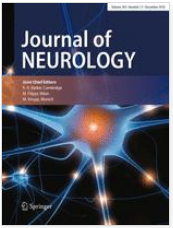 The vast majority (95%) of patients with facio-scapulohumeral myopathy (FSH) have type 1 (FSH1) which is linked to a reduction, on chromosome 4, in the number of D4Z4 repeats, between 1 and 10. FSH1 is characterized by high clinical variability between patients and within families. Its course is therefore difficult to predict, especially since few natural history studies have been conducted in this disease so far. A clinical evaluation tool, the CCEF (for Comprehensive Clinical Evaluation Form) was developed in 2016 by the Italian network of FSH specialists for a better classification of patients.
The vast majority (95%) of patients with facio-scapulohumeral myopathy (FSH) have type 1 (FSH1) which is linked to a reduction, on chromosome 4, in the number of D4Z4 repeats, between 1 and 10. FSH1 is characterized by high clinical variability between patients and within families. Its course is therefore difficult to predict, especially since few natural history studies have been conducted in this disease so far. A clinical evaluation tool, the CCEF (for Comprehensive Clinical Evaluation Form) was developed in 2016 by the Italian network of FSH specialists for a better classification of patients.
To help to describe the evolution of FSH1, a 5-year observational study was carried out by the same specialists using data from 246 people collected in the Italian FSH registry: 141 index cases showing signs of FSH1 and 105 asymptomatic relatives, all of which had less than 10 D4Z4 repeats and had been assessed with CCEF.
The results show that:
- the disease worsens in 80% of cases in patients against 38% in their initially asymptomatic relatives,
- a more serious course of the illness in patients with both facial and scapular weakness at the start of the study.
- asymptomatic persons stay asymptomatic in 80% of cases.
This study confirms the long-term clinical differences between index cases with FSH1 and their asymptomatic relatives with the anomaly; it suggests the involvement of other factors, genetic or environmental, in the severity of the disease. In addition, the CCEF appears to be a good tool for predicting the course of the disease and would make it possible to include participants who are more homogeneous on the evolutionary level in a future clinical trial …
